
The Bible does not shy away from the fact that, through much of Israel’s history, many of the people living in the land were pagans. Throughout the bulk of the Old Testament, the people of Israel and Judah often worshipped other gods, forsaking the one true God of Israel. Many of the prophets of the Old Testament spoke specifically about this problem, which eventually led to the kingdoms’ destruction. Occasionally a king of Judah would push against the idolatry of the people, but in the northern kingdom of Israel, the kings all embraced the gods of the Canaanites, especially the god Baal.
Baalism reached its peak during the time of King Ahab, who married the Phoenician (Canaanite) princess Jezebell. Jezebell was a staunch worshiper of Baal and she sought to rid Israel of all the prophets of God. The Prophet Obadiah managed to save them by hiding them in a cave. But while Obadiah and the other prophets were hiding, another Prophet, Elijah stood up to Ahab and Jezebell’s tyranny, and presented an ultimatum – a showdown between him, the last prophet in Israel who’s not hiding in fear, and the 450 prophets of Baal and 400 prophets of Asherah (Baal’s consort).
Elijah picks the battleground and terms of the showdown. His choice of Mount Carmel is interesting. At this point in time the Carmel range of mountains acted as a barrier between the Jezreel Valley of the Israelites, and the rocky coast of the Phoenicians. Spiritually, it is squarely in the territory of Baal worship. In this sense Baal has the home field advantage. However, Mount Carmel has a very commanding view of the Jezreel valley, and the bulk of the kingdom of Israel. There may be a sense that by choosing Mount Carmel, they are determining which god rules all the land visible from the top of the hill. Which god rules this land?
The terms are simple: Offer a sacrifice, but do not light it, whichever god responds with fire is the true god of Israel. Elijah, as the challenger, allows the Prophets of Baal to go first. After they spend all day trying to get Baal to respond to their prayers and send fire for the sacrifice, it become clear that Baal is not responding. Elijah sets up an altar, prepares a sacrifice, and then just to prove his point has people completely drench the sacrifice with water. After a relatively short prayer, God responds by burning up the entire sacrifice, including the stones of the altar and all the water.
And at the time of the offering of the oblation, Elijah the prophet came near and said, “O LORD, God of Abraham, Isaac, and Israel, let it be known this day that you are God in Israel, and that I am your servant, and that I have done all these things at your word. Answer me, O LORD, answer me, that this people may know that you, O LORD, are God, and that you have turned their hearts back.” Then the fire of the LORD fell and consumed the burnt offering and the wood and the stones and the dust, and licked up the water that was in the trench. And when all the people saw it, they fell on their faces and said, “The LORD, he is God; the LORD, he is God.” And Elijah said to them, “Seize the prophets of Baal; let not one of them escape.” And they seized them. And Elijah brought them down to the brook Kishon and slaughtered them there.
1 Kings 18:36-40
Strangely enough, after this amazing display of God’s power, Elijah seems to fall into depression and flees for his life. He goes to mount Sinai, where Moses encountered God, and complains about it being all for not, that the people of Israel are still trying to kill him. He encounters God is a magnificent way, seeing awesome displays of God’s power – a violent wind, a burning fire, and a massive earthquake, but God is not in any of them. It is here that Elijah learns that God is not in the displays of His power, but rather in the stillness that surrounds us, that he is not alone, and that God has been quietly preparing others to take up the role of prophet in Israel.
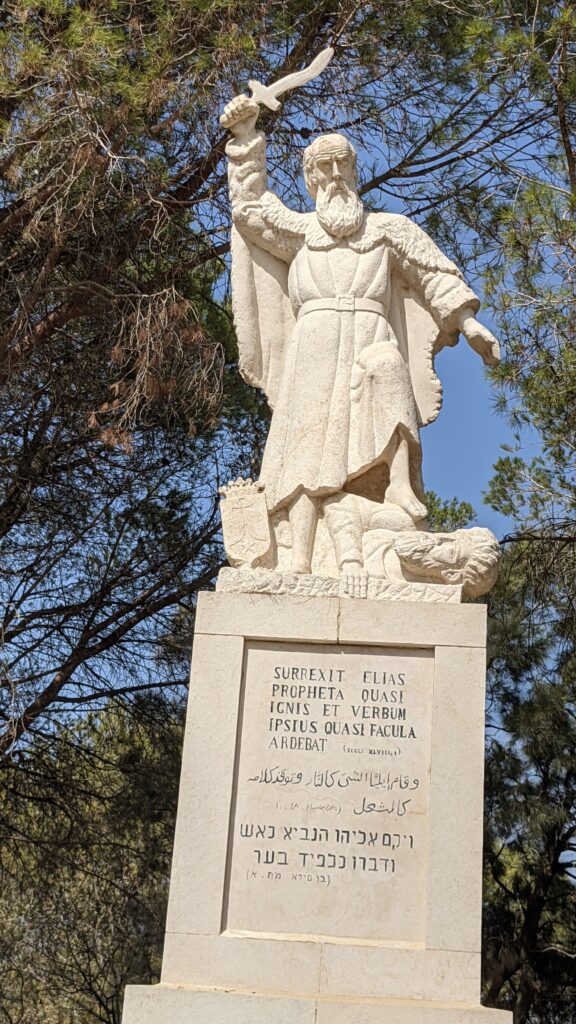
Whether Elijah had understood it or not, God’s display of power on mount Carmel did call the hearts of many of the Israelites back to Him, at least for a time. The fact that God moved in Baal’s territory would not have been lost on any of them. Baal was defeated, the God of Israel was the true God. Unfortunately, it did not last. Israel continued to turn to idols, and as a result was eventually destroyed and exiled by the Assyrian Empire.
However, the story does not end there. Roughly 750 years later, only a few miles south of Carmel, along the coast of the Mediterranean, God again did amazing things, in the city of Caesarea. Caesarea was a massive port city built by King Herod. Before Herod came along, this area was little more than a fishing village surrounded by swamps. However, Herod turned it into the first artificial deep-water port city in the world, using under water concrete to create a harbor that allowed merchant and Roman ships to sail right up to the shore, rather than having to rely on long boats carrying stuff between the galleys and the shores. It was truly an engineering marvel, and Herod set it up as the main center for Roman activity in Judea. It had all the makings of a Roman city – a gymnasium, a bath house, a massive theater (which is still used today), a hippodrome (racetrack), a temple to Caesar, and, of course, Herod’s Palace. It was a haven for Roman Gentiles, and as such Jews generally avoided the area.
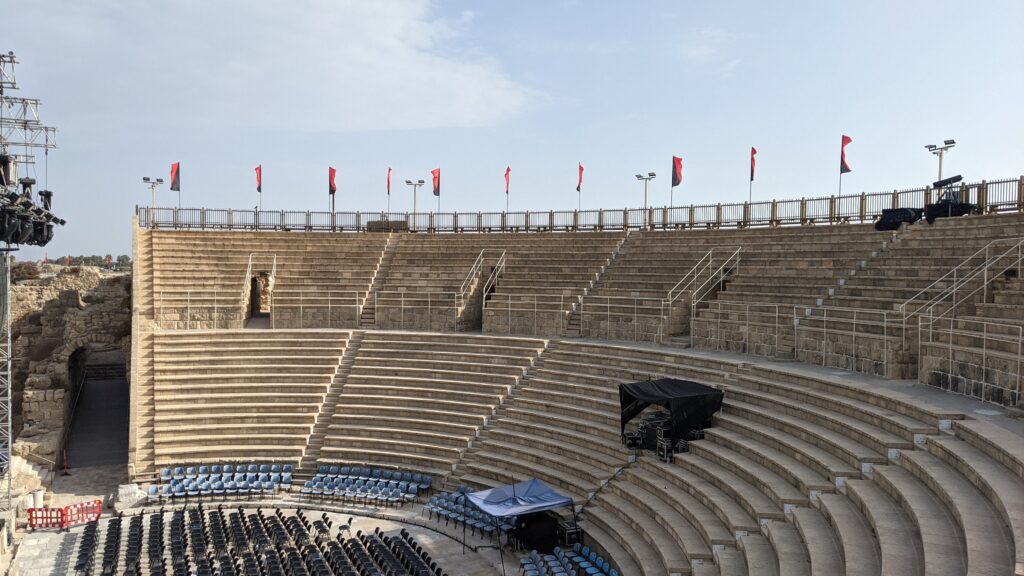
Caesarea’s Theater 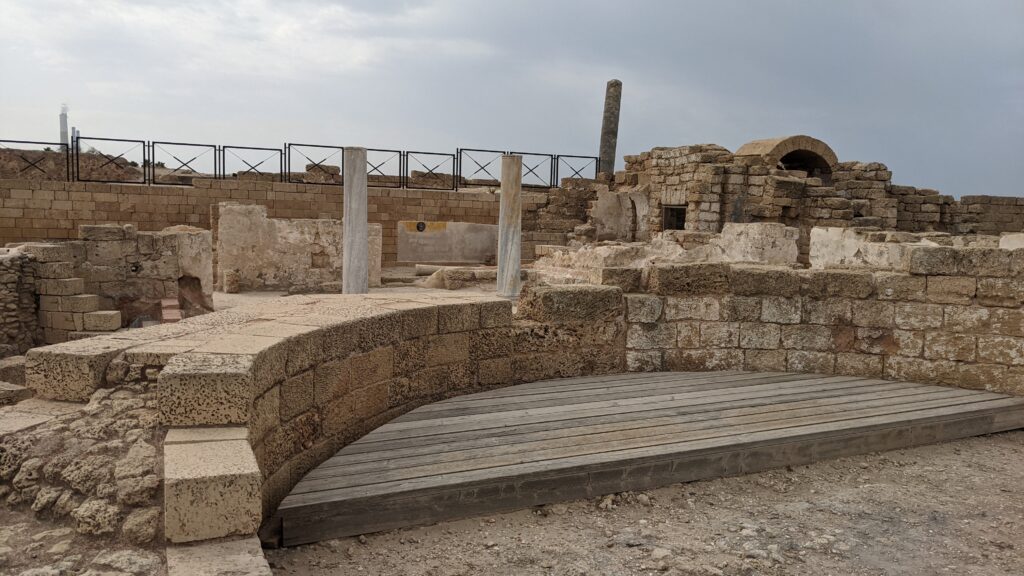
Part of the Old Gymnasium 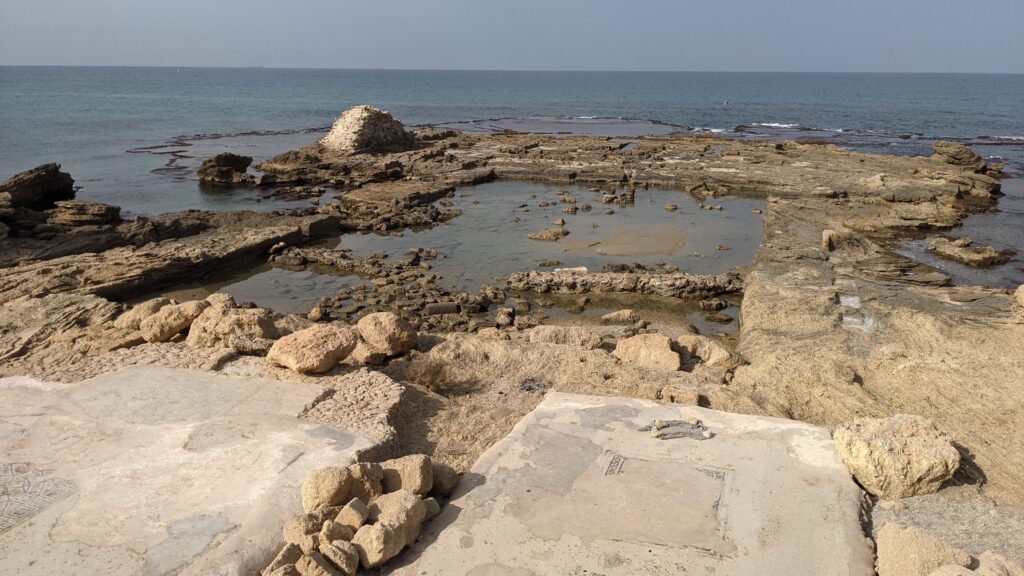
Herod’s Freshwater Swimming Pool, jutting out into the Mediterranean Sea 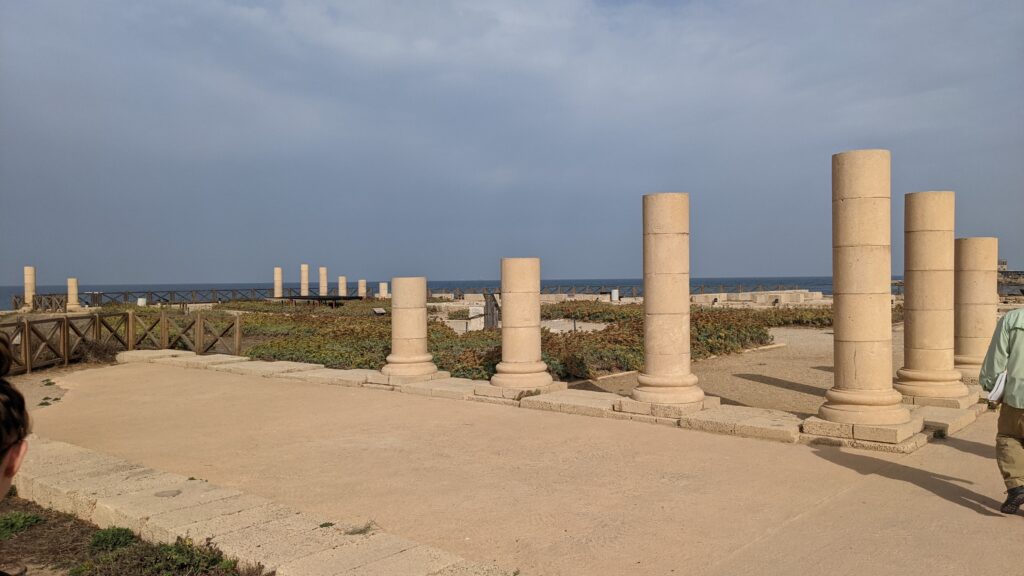
Pillars Near the Remains of Herod’s Palace 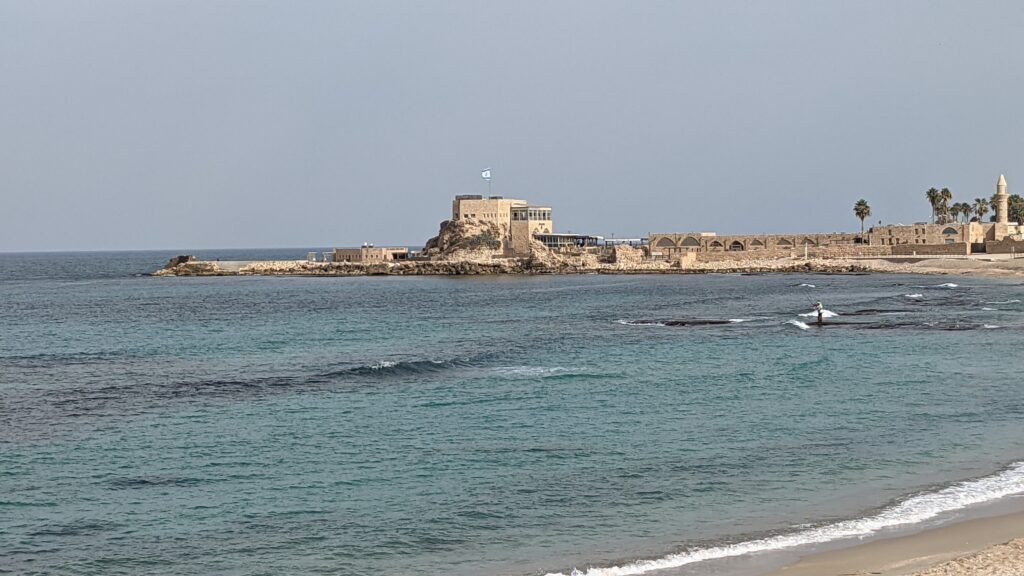
The Port of Caesarea
It’s here, in this city overrun by Romans, gentiles, pagans, idolaters, invaders, that God decides to do something amazing. In Acts chapter 10, God sends an angel to the house of a Roman Centurion, Cornelius. Cornelius is described as a “God-fearer,” a label for a Gentile who worships the Jewish God. He would have stood out as a bit of a sore thumb in Caesarea, as well as among the Jews. However, he worships God, and while praying is visited by an angel. The angel tells him to send for Simon Peter, who is staying in Joppa (about a day’s walk away), and so he does.
Peter, meanwhile, has his own vision, one where God teaches him to let go of his prejudices. When he is visited by Cornelius’s men, even though they are gentiles and Romans, and, as a Jew he normally wouldn’t be allowed to enter a Gentile’s home, he agrees to go with them. They return to Caesarea, and Corneilus mentions the visit from the angel. Peter understands this as God calling him to preach the Gospel of Jesus Christ to Cornelius and his family. He does so and as they are listening, the Holy Spirit appears, as it did at Pentecost, with all the same signs, a sign of God’s acceptance of the redemption of the gentiles. Here, in a pagan city that honors Caesar as a god, God pours out his Spirit on the gentiles, a second Pentecost.
This is huge! This is a watershed moment in history, and one of the most important ones to those of us who do not have Jewish heritage. This was the moment that proved that Christ died to forgive the sins of all, not just the Jews.
There are a couple other stories in Scripture regarding Caesarea, I will tell you about them in an upcoming video.
These sites illustrate a theme seen throughout scripture, that God sometimes does the most miraculous things in places where we least expect it. Not in the halls of temples or churches, but in the places where the spiritual forces of darkness would seem to have the largest hold. The places where other gods are worshipped. Perhaps it is because He wants to show that He alone is God. Perhaps it is to help the lost find Him by displaying works of power. Perhaps it is just to do something unexpected, like redeeming the Gentiles, or by appearing not in the works of power but in the stillness.
